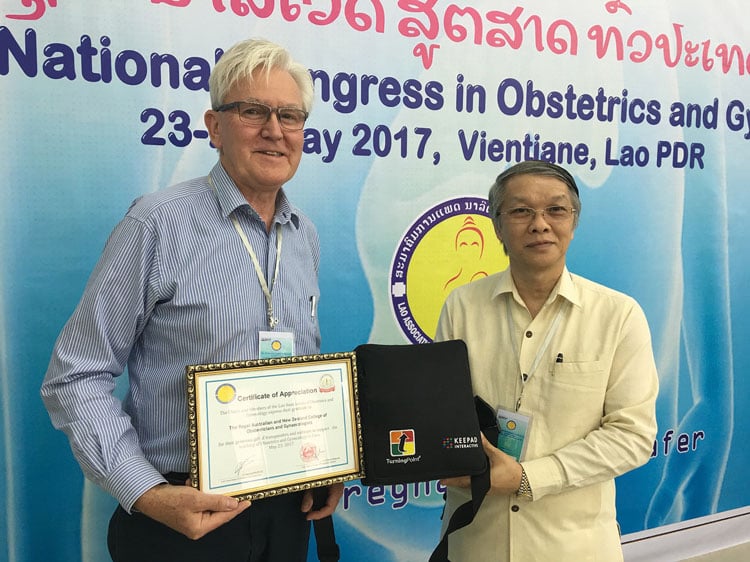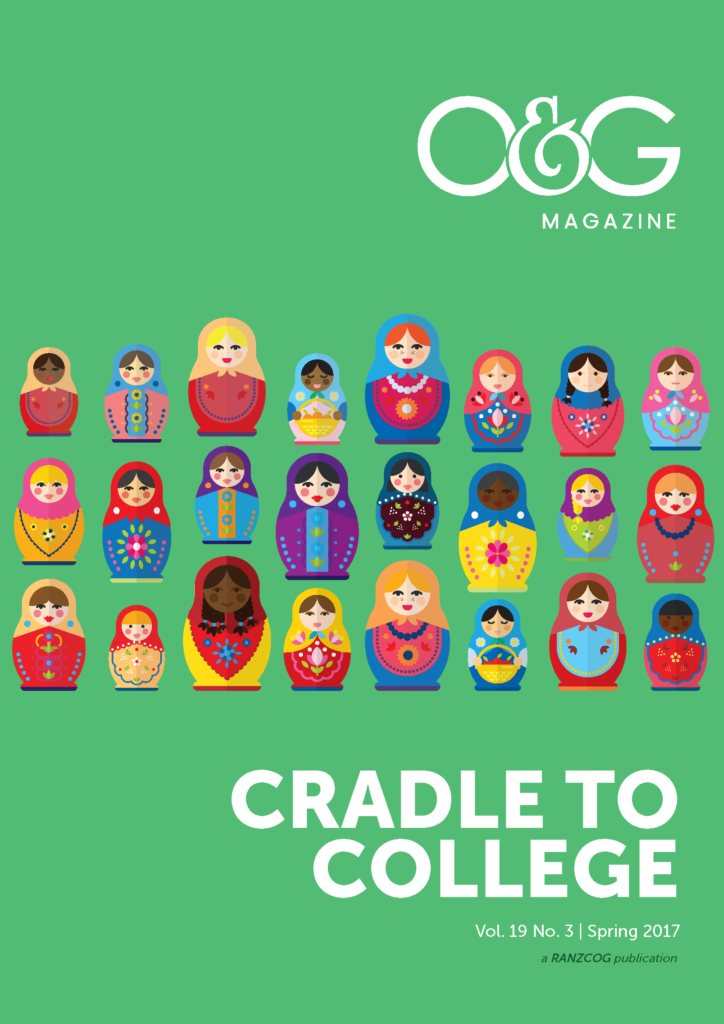There are many barriers to teaching obstetrics and gynaecology in Laos. The basic educational level of those entering medical schools is low by Western standards and medical education is also far from satisfactory, particularly given the magnitude of the challenges facing doctors here.
At Setthathirath Hospital, one of the four teaching hospitals in Vientiane, we have been involved in small-group teaching of postgraduate trainees and undergraduate students for about 45 minutes each weekday morning for the past seven years. We have also taught many of the modules that are central to the postgraduate course, and conducted and participated in journal clubs and other educational activities. Visiting teachers, even some with considerable experience in Laos, often complain that our trainees are not intelligent enough for specialist training, but we do not agree. We see a series of barriers to learning, arising from both teachers and students. A common problem is experts who show their expertise by teaching at a far higher level than needed in the circumstances here: the postgraduate modules developed by a largely German consortium fall into this trap. We try to emphasise to visiting teachers that their expertise is best shown by looking at what needs to be learned and teaching that, rather than what they think could be learned. It must be recognised that one cannot build a skyscraper without foundations and, at present, our postgraduate trainees lack the foundations on which postgraduate medical education in the West is built. It is all too easy to mistake lack of knowledge for lack of intelligence, and teaching or demonstrating through an interpreter can compound this misconception.
We have found that one of the greatest challenges in teaching is engaging the learners in the educational process. Lack of engagement is caused by many factors here. Sometimes it is because the material being taught is beyond the capacity of the learners. Another factor is the fear of being wrong, and ‘losing face’, which is a greater problem in this culture than it is in Western societies. Traditionally, teaching in Laos has been didactic, with little or no chance for learners to interact constructively with teachers who are viewed as important authority figures. Some teachers actively discourage interaction, lest a good question they have trouble answering causes them to lose face! Even in Laos, social media is an ever present reality, with teachers constantly challenged to draw students’ attention away from their phone.
Over the last seven years we have striven to find ways to increase the involvement of our trainees in the learning process. We have a rule that only the person designated by the teacher can answer a question, and that ‘I don’t know’ is not an acceptable answer; however, keeping the rest of the group involved during the often painfully slow process of drawing out an answer is difficult.

Some of the faculty and audience after the final workshop.
In 2016, Dr Rupert Sherwood was a guest speaker at our ASM, and he brought 50 transponder units with him on loan from RANZCOG. We wanted speakers to provide pre- and post-talk questions for the audience, but that proved too difficult to organise at late notice. Instead, we held a quiz on general obstetrics and gynaecology at the plenary meeting using the transponders, which was a great success. Those using the transponders were excited, and others in the audience found the revelation of the range of answers fascinating, with some who had taught on the subjects only weeks before seriously embarrassed! We had a full-day seminar as a post-meeting activity for trainees and recently qualified specialists and used the transponders throughout. Many of the senior teachers were present to observe. The exercise was assessed a great success by all present, with the 50 or so participants feeling fully involved in the learning experience.
In 2017, the College generously donated 100 transponders and the ‘Turning Point’ program to the Lao Association of Obstetricians and Gynaecologists for use in educational activities. A local expatriate church, the Church of the Holy Spirit, complemented the gift by donating a laptop computer to support the program. The gifts were accepted by the Chair of the Association, Dr Anan Sacdpraseuth, at the opening ceremony of the annual meeting in late May, with more than 150 local specialists and other interested parties present.
The authors had arranged three one-day workshops using the transponders, primarily targeted at trainees and recent graduates. The first workshop attracted more than 80 attendees, and even the third, on a hot Friday afternoon, had more than 60 present – a remarkable achievement in Laos! Each of the authors spoke and we had two other invited guests from Australia, Profs Richard Millard and Michael Campion, to contribute sessions on a range of topics. For each presentation we spent considerable time developing questions to reinforce important points and to keep the audience involved. On the afternoon of the final day we devised a series of questions relating to the main content of each of the workshops and used these to guide an interactive forum between the speakers and the audience, which proved to be most effective.

Dr Rupert Sherwood gives the transponders to Dr Anan Sacdpraseuth, President of the Lao Association of Obstetricians and Gynecologists.
Our plan is to hold teaching sessions using the transponders for trainees every two months covering important topics. We are also looking at special case-based teaching for the trainees in their third and final year addressing, in particular, differential diagnosis and clinical decision-making; two areas in which specialists here are particularly poor. So far we have only used the equipment to poll the opinions of groups, believing that approach avoids embarrassing those with poor answers, but in smaller group work we intend to use the ability of the software to identify individual responses, both to assess knowledge and progress and to guide individual teaching and learning efforts.
The beginning of this collaboration between RANZCOG and the Lao Association of Obstetricians and Gynecologists is most welcome and we, as a core teaching group, will be encouraging some of our Australasian colleagues to participate in future meetings in Vientiane. We are convinced that success will be determined as much by how we teach as what we teach. The approach to teaching here must be designed to encourage good learning habits in those being taught, while at the same time, conveying important knowledge.






Leave a Reply